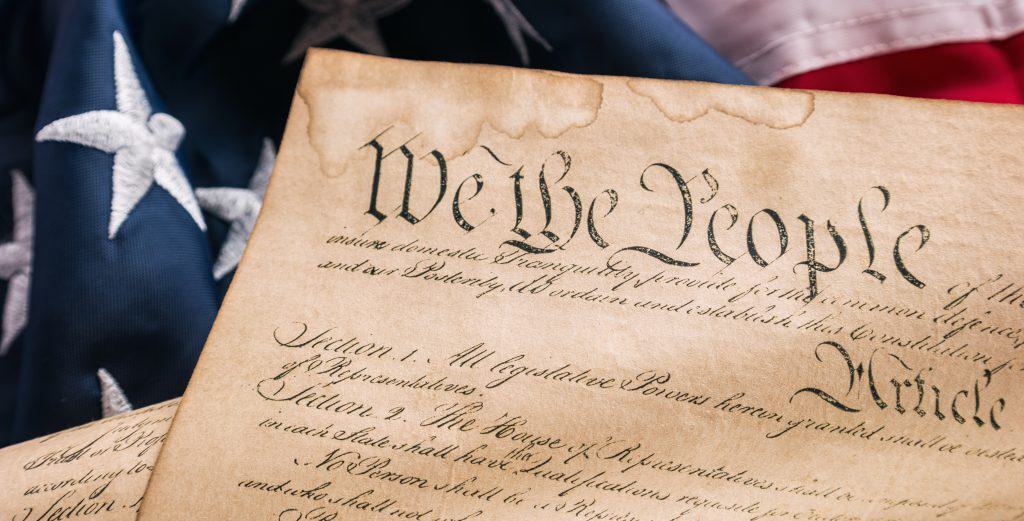If you didn’t know, one of the amendments on Tuesday’s ballot is to adopt a new constitution for the state, a copy of which can be found here. As you can imagine, my office has been getting many calls and emails asking if there are problems with it. This article sets out to give my thoughts on three frequently asked questions.
First, what changes does the new constitution contain? According to the Alabama Secretary of State’s Office, the new constitution makes only the following changes: (1) It rearranges the constitution so that similar subjects are placed together; (2) it removes racist language; (3) it deletes repealed or repeated portions or language; (4) it places all amendments dealing with economic development together; and (5) it arranges local amendments by county.
From what I can see, the proposed constitution is faithful to this limited grant of authority. The people of this state who have called my office with suspicion and questions were right to ask whether their government was telling the truth. I too regarded the government’s promise with suspicion. Nevertheless, from what I can see, the new constitution stays within these limits. I personally have no objections to these five categories of proposed changes.
Second, is this method of adopting a new constitution legal? In the past, the answer was no. For years, Article XVIII of the Alabama Constitution provided the only way to adopt a new constitution. In 1983, in State v. Manley, the Alabama Supreme Court struck down an attempt to adopt a new constitution through an amendment, because it did not comply with Article XVIII. Multiple people have asked me whether Manley precludes the adoption of a new constitution by voting on an amendment, which is exactly what we’re being asked to do on Tuesday.
The answer, in this particular case, is no. In 2020, we passed a constitutional amendment (now Section 286.02 of the Alabama Constitution), authorizing the legislature to propose a new constitution addressing only those five issues and submitting it to the voters through this means. So in other words, we made a one-time exception to Manley and put it right in the constitution. Generally speaking, I do not think this is a good way of adopting a new constitution. Nevertheless, this is what we voted for.
Finally, there is the issue that has me concerned the most: If there are inconsistencies between what certain words in the constitution meant in 1901 and what they mean now, then which interpretation governs?
It is no secret that the left often wins its political battles by hijacking words and changing their meaning. For instance, the left’s definition of “racism” has changed from the classic definition – the sin of partiality on the basis of race – to the notion that inequality of outcome is racist. Likewise, “anti-vaxx” now refers to individuals who are not just against vaccines but also against vaccine mandates.
So what happens to terms like this that have been enshrined in the Constitution of 1901 but have been casualties of the war of worldviews? Fortunately, the trend among the supreme court of other states is to interpret the words according to their historical meaning unless it can be shown that the people intended to change their meaning with the adoption of a new constitution. From what I can see, the Alabama Supreme Court has not explicitly addressed and answered that broad question. But each time it has had to wrestle with specific questions of constitutional interpretation where the same words have appeared in past constitutions, the Alabama Supreme Court has included the past constitutions in its analysis instead of interpreting the words in a historical vacuum.
Thus, if there are any attempts by liberal lawyers to hijack the meanings of old words in the new constitution, I think the Alabama Supreme Court will be skeptical of their claims. In addition to the trends I mentioned above, the ultimate fallback is that Section 286.02 authorized the new constitution to do only five limited things. Thus, any attempt to hijack the rest of the constitution under a new interpretation of words should be squarely rejected by the Alabama Supreme Court.
In conclusion, while I think this method of adopting a new constitution could be dangerous, it seems to me that the three chief dangers of which we should be concerned are not present in this case. It has taken work to get to the bottom of these questions, but the work is worth it. Self-government can succeed only if liberty’s only guardian—the people—are vigilant, diligent and skeptical of any attempt to change its fundamental law.
Matt Clark is the President of the Alabama Center for Law and Liberty, a conservative nonprofit law firm that fights for limited government, free markets, and strong families in the courts. His column appears every Friday in 1819 News. The opinions expressed in this column are those of the author. The views and opinions expressed here are those of the author and do not necessarily reflect the policy or position of 1819 News. To comment, please send an email with your name and contact information to Commentary@1819News.com.
Don’t miss out! Subscribe to our newsletter and get our top stories every weekday morning.










